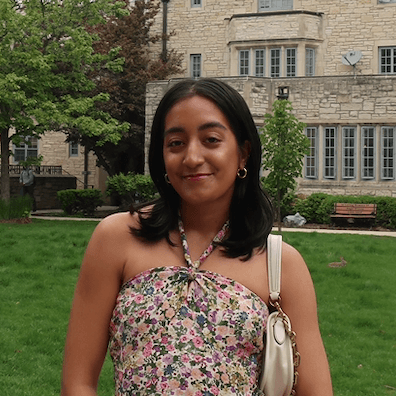After receiving a cancer diagnosis, beginning treatment–often as quickly as possible–becomes your top priority. While timeliness is key, finding a medical provider you trust is equally important. It’s time you might feel like you don’t have, but it’s time worth taking to get right.
Getting a second (or third; or fourth) opinion is a good, standard practice when you receive any kind of medical care, but particularly with a cancer diagnosis. “What you’re looking to do is find a team you’re really comfortable with,” says Dr. Laila Gharzai, a radiation oncologist at Northwestern Medicine.
You can, if you’d like, compare this process to finding the right partner. “It’s kind of like dating,” says Dani Trops, who was diagnosed with breast cancer when she was 30, “because I wanted to make sure I not only felt comfortable with whoever I was going with for my care team, but that they treated me the way I wanted to be treated, that I felt like I could trust them, and that we had similar goals…and that they would listen.”
We know, the thought of having to search for doctors, make multiple appointments, and decide what is best is stressful, but finding the right fit for you is truly worth the extra time.
Here’s some advice and guidance from experts and the Jadey community about how you can go about the search for the right doctor for you.
How Do I Know If I Need a Second Opinion?
Well, probably everyone should get a second opinion. Sometimes your doctor may even recommend you do so to hear what others have to say. If you have an especially rare type of cancer, it’s important to find specialists and talk to them. You might want to get the feel of a different hospital. It’s also good to know what other treatment plans other oncologists propose before you decide to move forward. Some insurance companies also ask you to get a second opinion.
Importantly, getting more opinions doesn’t mean waiting for a doctor to provide a specific diagnosis or treatment you are seeking out (one that might contradict medical advice you’ve heard a couple times before). Instead, it’s about getting a range of medically informed perspectives on your diagnosis and proposed treatment plans. It’s also about finding someone you feel comfortable with.
How to Search For Providers
Depending on how you were initially diagnosed, your first point of contact may either be your primary care physician or the hospital where you received your diagnosis. They may be the first one to refer you to an oncologist, but that doesn’t mean that you have to stick with their choice, especially if they don’t specialize in your specific cancer.
When looking for other providers to talk to, there are a few initial considerations you may want to make as you think about what your care may look like. For example, location may be a primary concern, so you can ask for closer recommendations, or start with an internet search for doctors at hospitals near you or at places you are willing to commute to.
Once you know your specific cancer type, it’s also important to find someone who specializes in that type of cancer. Not all oncologists are experts in all types of cancer. You can ask your primary care doctor or whoever diagnosed you if they know anyone. You can also ask oncologists you speak with for additional referrals either within that same clinic or elsewhere. This might feel awkward at first, but doctors know their colleagues’ expertise. Another way to find doctors with expertise in your form of cancer is to see whether they are involved in research about this type of cancer; most hospital websites include a list of published research studies on a doctor’s profile.
Finding providers also means checking to see whether they take your insurance. Your insurance company should give you a list of local, in-network providers. You should also check with your insurance to make sure that they will cover a second opinion. Even if a provider is not listed under your insurance, it may still be worth reaching out to them and seeing if they might be able to accept your plan. If you are on Medicare on Medicaid, you can use provider search tools either on your state’s Medicaid website or federal Medicare resources to find doctors that accept those programs.
Some hospitals also provide remote second opinions. This could be through a telemedicine appointment or electronic review of your medical files. However, these services are often not covered by insurance.
Make a Doctor Wish-List
So how will you know what kind of provider is best for you? Assess what you value (like a gentle bedside manner, a no-sugarcoating policy, years of experience, geographic location, availability for conversation) and evaluate your providers based on these qualities.
Paula Ruska, who was diagnosed with throat cancer when she was 68, says that finding a care team that saw beyond her cancer was important to her. “Every time I saw doctors, they were interested in my whole life,” she says about the medical team at her chosen clinic. “Not just the cancer but, ‘what are you doing? Are you able to get around? Are you doing daily chores, domestic things? Are you eating? Are you cooking everything?’ They wanted to know how I was doing as a human being. I wasn't just a piece of cancer to them,” Ruska says.
Dani Trops says that finding a provider that was willing to listen to her questions about her cancer and treatment, no matter how small, was important to her. “It was really based on, for myself, that I wanted someone that was warm and comforting and was willing to tell me straight facts but also that I felt like I was being listened to,” she says. “Someone that didn’t make me feel smaller because I was asking questions.”
Some helpful things to ask— suggests Cristina Pozo-Kaderman, a senior psychologist and director of the Young Adult Program at Dana-Farber Cancer Institute and author of Coping With Cancer in Early Adulthood: Do they take the time to answer your questions? Do they look you in the eye? Do they talk down to you, especially about your concerns?
And a good question to ask your doctor, she says: “Do you have experience working with people my age with [my type of cancer]?”
And Do They Have the Same Priorities as You?
Not all doctors will care about what you care about. It can be helpful to think about what your daily and long-term priorities are before going into a conversation with the medical team. What daily functions would you like to be able to keep doing during treatment? What are skills or activities you do not want to lose the ability to do after treatment?
“If I were to have an oncologist for myself, I would want them to be open and honest with me about the treatment options… [and my] quality of life,” says Dan Rush, a former registered nurse and current Senior Clinical Manager at Healthnetwork Foundation, an organization that helps link business leaders to hospitals and clinical providers for their disease care.
Explaining these priorities to each physician you meet with and seeing whether they respect those is important. While it may not be possible to check every box, finding a doctor that understands your values and attempts to tailor a treatment plan to best fit those is important. Jadey has a list of questions to help you evaluate your provider here; and tips for early doctor’s appointments here.
Comparing Proposed Treatment Strategies
Different doctors may suggest different treatment regimens depending on their expertise and common practices at their clinic.
For example, Paula visited two other doctors before landing on her final oncologist. The first two doctors recommended partial tongue removal, which would impact her speech and ability to eat. Ultimately, it was the third doctor’s proposal of the non-surgical option and concern about her holistic survivorship that made Paula select her. It may also take you a few consultations until you find that match, both in personality and in treatment plans. This click didn’t happen in Paula's first or second appointment, but when it did, it made her feel much more at ease – you deserve this same sense of comfort with your physician.
Don’t Worry About Offending Your Physician – You Won’t.
Dr. Gharzai says that doctors recognize the importance of getting a second opinion and typically are not offended by you doing so.
“You should never second guess getting a second opinion,” she says. “I’m so used to people seeing multiple doctors and getting multiple opinions. None of us are going to worry or care if you want to go have a second set of eyes or have other opinions or see if other places have other clinical trials that might be open to you.”
Getting a second opinion is common, and a good physician will want to make sure you select the care team that makes the most sense to you. Remember to ask your doctor for your medical records and any pathology slides or imaging so that you can share them with your second opinion physicians.
Do I Have Time to Get a Second Opinion?
Timeliness may vary depending on your diagnosis. Some cancer centers do make attempts to prioritize more urgent cases to make sure you can get appointments. Some cancer centers also offer remote consultations via video call or written reports for a fee.
Yes, searching for and meeting with various providers can be a tiring and stressful process. Being vocal about your priorities and concerns will help make sure your doctor is the right person to treat you. That’s the most important thing in the long run, and worth this effort now
“I think sometimes gathering all the information you possibly can in the beginning when you’re first diagnosed and first figuring things out can be really empowering,” Dr. Gharzai says.









